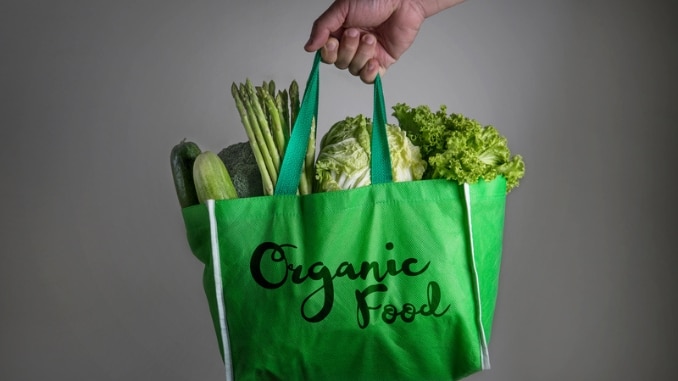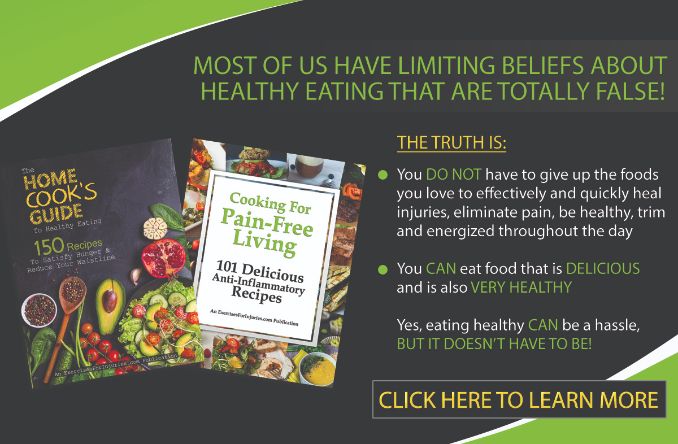The information that we will be discussing is basically for your information only. It does not replace the care of a physician. Consult a physician if you are looking for individualized nutritional information based on your health history or current health status.
Organic foods are grown without pesticides, synthetic fertilizers, genetically engineered plants, irradiation, or sewage sludge. They’re also generally less processed than conventional foods, containing more nutrients and enzymes. Organic foods are so nutritious because they don’t contain pesticides and other chemicals. Pesticides and chemical fertilizers can be found in conventional foods as well. Organic food is grown with minimal pesticides but can still contain preservatives, antibiotics, and other additives. In addition to being more nutritious, eating organic foods are also better for the environment. They don’t contribute to pollution because they aren’t grown using toxic chemicals or petroleum-based fertilizers. Organic farming also helps protect wildlife by reducing pesticides that can harm animals and birds.
Eating Organic Foods
A diet that includes organic foods is an easy way to reduce exposure to pesticides and other chemicals. Organic produce and meats are higher in nutrients, vitamins, and antioxidants. They’re also typically grown without synthetic pesticides, herbicides, or growth hormones. Food safety is another benefit of eating organic. Most organic foods are inspected before they leave the farm to ensure harmful bacteria or pesticides haven’t contaminated them.
When buying organic foods, look for a label that shows where the food was grown, how it was grown and how it was produced. This helps ensure that you’re getting a safe product. If you’re concerned about the health effects of pesticides and other chemicals on your body, eating organically is one way to limit your exposure. Many experts recommend eating organic when possible because it reduces exposure to potentially harmful chemicals and food additives. When shopping for organic produce, look for fruits and vegetables with no brown spots or smaller spots than the rest of the fruit or vegetable. Also, avoid any product with signs of mold or signs of decay, such as a slimy texture or a musty smell.
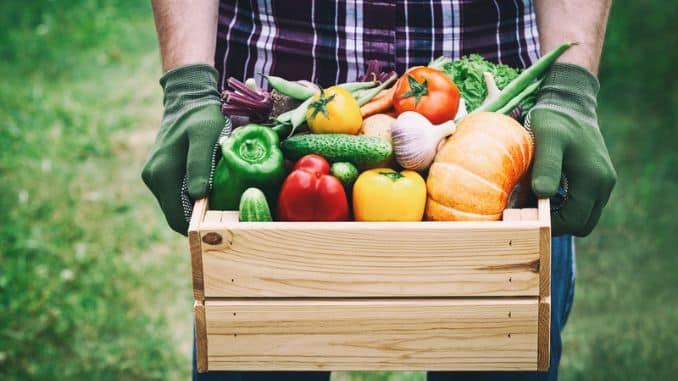
What does it mean to be organic? What is required for a farmer or product to have that label on it?
Generally speaking, there is a difference between certified organic and everything else. Something has a certified organic label indicating that the farmer who has produced that crop or livestock has undergone a series of standards like site inspection and followed some regulations to gain that certification.
Organic farmers avoid most synthetic pesticides. They use some agents to help ward out pests, but they are not considered synthetic pesticides.
Pesticide free is not guaranteed to be the same quality as organic. It’s a good starting point, but there are no standards that people who have those labels have to follow. It’s not a regulated term to be pesticide free. We don’t know what pesticide-free means. One benefit of that certified organic label is that it is standardized and regulated. We can be a lot more confident that what we are getting will be much lower in pesticides and chemicals.
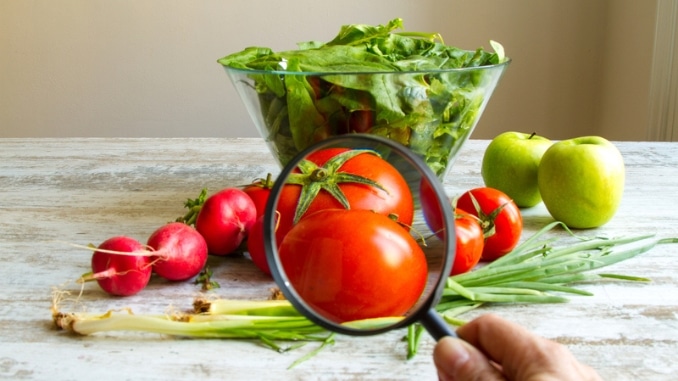
So why do we care about pesticides?
Chemicals, in general, are a very poorly regulated industry. Hundreds, if not thousands, of chemicals are not regulated. We don’t know much about them. They don’t have to undergo safety data and testing. As we are regulating chemicals, they are producing more chemicals.
Pesticides are the chief concern when we are dealing with organic. Pesticides and herbicides used in non-organic farms are linked with congenital disabilities, obesity, diabetes, ADHD, and other health issues, including cancer, gastrointestinal issues, skin issues, neurological issues, respiratory challenges, and reproductive and endocrine effects. On a high dose scale, if someone is exposed to many pesticides and herbicides, there is hospitalization and even death because these are toxic chemicals.
How do our bodies metabolize these chemicals?
We excrete some of the pesticides that are stored or accumulated in fatty tissues in our body or the adipose tissue. Our body is smart and knows it’s relatively safe storage, so it will re-accumulate the fat as quickly as possible to find a place to store these chemicals. Some people trying to lose weight might lose a little, which can release some chemicals into circulation. If we are not actively detoxifying as we are doing our weight-loss protocol, it’s very easy to gain that weight back because we bring all these chemicals into our system that our body is not dealing with very well.
Where do we find pesticides in the foods that we buy? What foods are safe from pesticides, and what foods are not?
Pesticide residues are found in our daily foods, including pre-prepared cooked meals. It might have pesticides in them. Even bottled water has some pesticides. Wine is a big source of pesticides, fruit juices, and animal feed that we feed our livestock and eat meat products. These are all sources of pesticides.
Can we wash them off our food? Is that effective?
Washing and peeling can’t eliminate residues, but it does help. In most cases, concentrations of pesticides in the food don’t exceed the legislative-determined safe levels. This means that it is considered to be a safe level of pesticide on our food. But the question becomes, how are we determining these safe limits? Are we underestimating what these safe limits are? When we look at the actual health consequences of lots of pesticides in our foods, maybe we need to have a little bit higher standards for what we consider safe levels of pesticides in our foods because it turns out there are a lot of health issues even at this determined to be “safe level.”

Examples of pesticides:
- There is a disruptive endocrine property, and it can also have carcinogenic action. An example of organochlorine is DDT, commonly found in insect repellants. It has been found that DDT is responsible for causing neurodevelopmental effects in children.
- Organophosphate – the most common example is glyphosate. It is the most widely used pesticide worldwide. It has a whole variety of potential effects on our health.
Effects of Glyphosate:
- It can have effects on the endocrine system. If there are any endocrine disruptors in your health history or your loved one’s health history, one of the things you may think about is, what are the chemicals that may be disrupting the endocrine system. How can you reduce your exposure to these chemicals?
- It can also affect your cholinesterase enzyme function, the chief processor for one of our main neurotransmitters – acetylcholine. It can decrease insulin secretion.
- Glyphosate can also disrupt the normal metabolism of proteins, carbohydrates, and fats.
- It is a DNA disruptor. It can have toxic effects on our genes. Any person who has infertility or struggling with fertility or getting pregnant or maintaining a pregnancy, if they are eating non-organic foods or foods that have exposure to pesticides and they are not necessarily washing these foods as well as possible that is a very good indication to switch to an organic food diet.
-
Mitochondrial dysfunction.
Mitochondria are the energy-producing factor in every cell in our body. If your mitochondria are affected by pesticide exposure, you will feel tired; you will not have the same metabolism and sluggish energy, and all systems will be affected. Many things can affect all of these systems, but just because pesticides are modifiable risk factors, they are reasons enough to be aware of and do something about it.
- Glyphosate can cause nervous system issues and increase oxidative stress. Oxidative stress is one of the reasons why you might have a heart attack. Lipids in the blood vessels and oxidative stress can create an inflammatory cascade. We can have a blockage, plaque dislodges, and move to a different place in the heart, and then we get a heart attack.
- Cardiovascular disease. Glyphosate may also disturb the body’s natural enzymes, causing lysosomal dysfunction. This dysfunction can potentially cause cardiovascular disease and heart failure.
- Men's Reproductive issues. Studies show that glyphosate can disrupt hormones and cause damage to the reproductive system. The disruption of these hormones can lead to infertility, congenital disabilities, or reduced sperm count. Glyphosate may also affect testosterone levels in men, leading to reduced sex drive and erectile dysfunction.
- Dementia
- Neurological problems in children. Conditions like ADHD and autism are linked to glyphosate exposure. These do not necessarily cause an effect, but it does seem to be the case that there are neurological consequences to pesticide exposure.
What is a GMO?
GMO stands for Genetically Modified Organisms. Some crops are commonly genetically modified. These genetically engineered crops are more resistant to pesticides. They are more robust, so we can grow them easily. Corn and soya are two commonly genetically modified crops, considered glyphosate-tolerant crops. They are genetically engineered plants to tolerate glyphosate exposure without disrupting the plant itself. So, when we’re eating soy, for example, we already know that soy increases estrogen levels; adds to it the glyphosate aspect, and now we have some potentially serious issues with the ability of these plants to disrupt our hormone balance strongly. Roundup is being used in our plants. That is also a glyphosate pesticide.
A recent study examined the possible relationship between glyphosate, genetically modified crops, and health deterioration in the US, and the correlation analysis was concerned with possible connections between glyphosate use and various health effects and diseases like high blood pressure, diabetes, stroke, autism, kidney failure, Parkinson’s, Alzheimer’s disease and cancer.
The other thing that is interesting about glyphosate is that there is a potential that it can cause gluten intolerance which is a very common health issue nowadays. People who are gluten intolerant can experience deficiencies in essential trace minerals, have reproductive issues, increased risk, and develop non-Hodgkin’s lymphoma.
To learn more about glyphosate's role in the wheat industry, we recommend a good book, “Wheat Belly.” The book discusses why wheat is such a hot issue for so many people now, largely due to pesticide exposure and the additional strain it puts on our bodies. Even switching to organic wheat is an improvement over ordinary conventional non-organic wheat products.
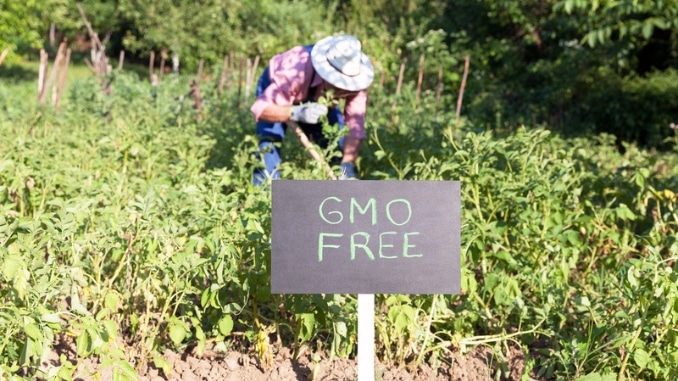
Why do we care about organic foods? What does it do for us?
Organic foods tend to be more nutritionally dense. They have higher amounts of vitamin C, magnesium, phosphorus, and iron, and organic milk contains more omega-3 fatty acids than conventional milk. With organic, we are not exposing the foods to so many chemicals. The foods we purchase in organic stores tend to be fresher, so they will last longer.
Organic livestock is organic meat, poultry, eggs, and dairy products.
Why do we care about these things?
Synthetic hormones have been linked to early reproductive development in human females and health problems in livestock.
By definition, organic means non-GMO. Organic producers don’t use genetically engineered foods or genetically modified organisms.
Releasing GMOs in the environment without proper research has unknown consequences on our health, the environment, and biodiversity. When we eat organic, we consciously support the environment as a whole. We must be a little more mindful of what we do for our bodies and the environment. We will live in this place for a long time and want to ensure that we keep this planet as healthy as possible. One of the ways we can support that is by choosing non-GMO products and organic foods.

FUN-FACT:
If you are an organic farmer and you get the drift from a non-organic farm, you are financially and legally responsible for fixing that.
The Environmental Working Group (EWG) comprehensively examines USDA data annually to create the infamous Clean 15 and Dirty Dozen lists, which list the fruits and vegetables grown with the most and least pesticides based on the most recent data.
This resource is design to assist you in choosing nutritious foods, rather than serving as an indicator that you should avoid all fruits and veggies, even those regarded as ‘dirty.'The Dirty Dozen and Clean 15 lists aren't a list of foods to avoid completely. The Dirty Dozen and the Clean 15 may assist you in deciding which organic produce to prioritize from a health perspective if you are on a tight budget.
List of Dirty Dozen for 2022
These are the foods that you would want to purchase in the organic form:
- Strawberries –most highly pesticide fruit
- Spinach
- Kale, collard, and mustard greens
- Nectarines
- Apples
- Grapes
- Bell and hot peppers
- Cherries
- Peaches
- Pears
- Celery
- Tomatoes
Fruits are the highest pesticide kind of food group, except for celery.
List of Clean Fifteen 2022
These are the foods that you don’t need to buy in their organic form:
- Avocados
- Sweet corn
- Pineapple
- Onions
- Papaya
- Sweet peas (frozen)
- Asparagus
- Honeydew melon
- Kiwi
- Cabbage
- Mushrooms
- Cantaloupes
- Mangoes
- Watermelon
- Sweet Potatoes
Variety of ways you can do to wash your food:
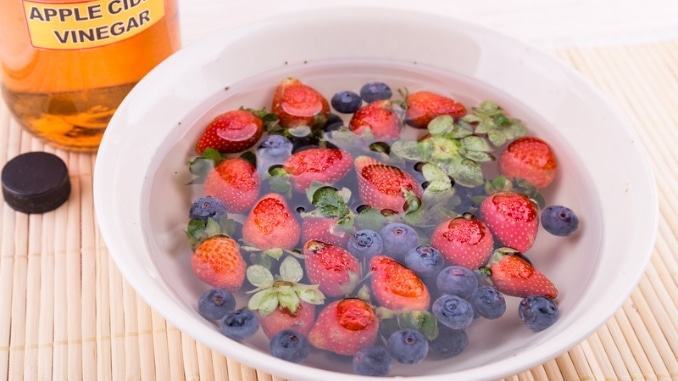
- Apple Cider Vinegar soak
In general, none of the self-wash methods at home will eradicate 100% of the chemicals in the food. It was thought that washing your food eliminates 75 to 80% of the pesticide residue.
- Cold Water
Rather than the temperature, the friction you apply to the fruit or vegetable makes the most difference. If you’re washing an apple, you can scrub it rather than haul it in under a tap and let the water wash over it.
- Salt Water Solution
This is more effective than just water itself. Mix two teaspoons of salt into four cups of warm water and dissolve it. Once it’s cool, you can soak in it for 30 to 60 minutes. Rinse with water.
- Vinegar or Lemon Juice Soak
Fill a bowl with four quarts of water, one-quart vinegar, or lemon juice. Soak your fruits or vegetables for 60 minutes before rinsing and scrubbing with salt and cold water. This will also help prevent spoilage.
- Peel and Trim Your Produce
This is considered the most effective way but not 100 percent effective.
Conclusion:
Organic food helps us consume healthier and nutrient-filled foods in our bodies and is also great for our environment. Organic produce has a smaller carbon footprint than conventionally grown crops. When you buy organic, you help the environment by reducing your carbon footprint and avoiding potentially harmful chemicals.
In addition to being more sustainable, organic food is also better for your health. The lack of pesticides in organic crops helps prevent the growth of harmful bacteria and pathogens that can cause food-borne illnesses. It’s also easier on your digestive system since it’s likely to be naturally less processed than conventional foods. Finally, organic food may taste better since it doesn’t have added preservatives or artificial flavors. So while it’s a bit pricier than its conventionally-grown counterpart, eating organic is usually worth it if you care about what you put in your body and want to support a sustainable farming industry!

